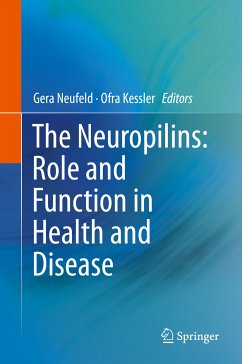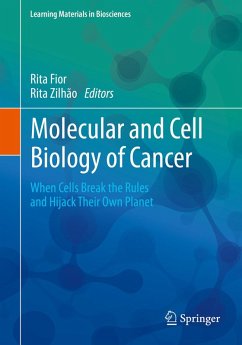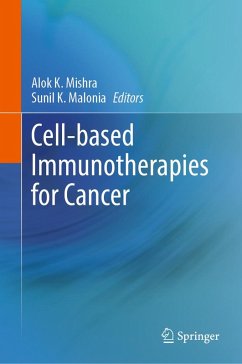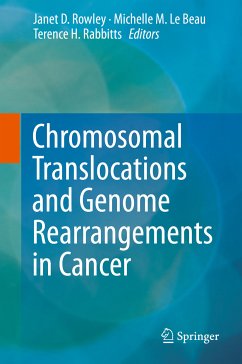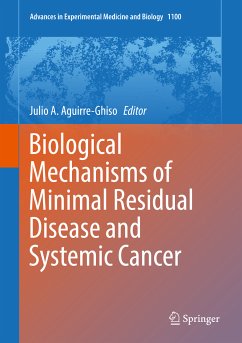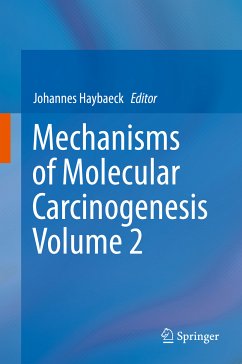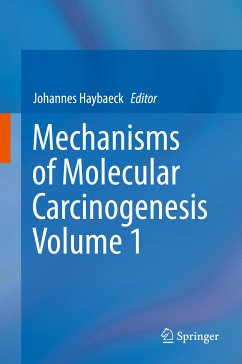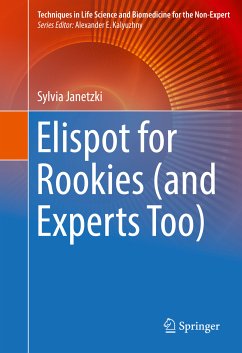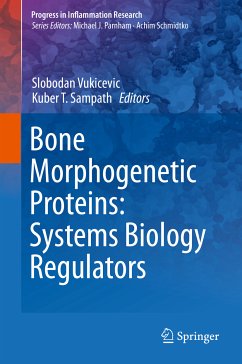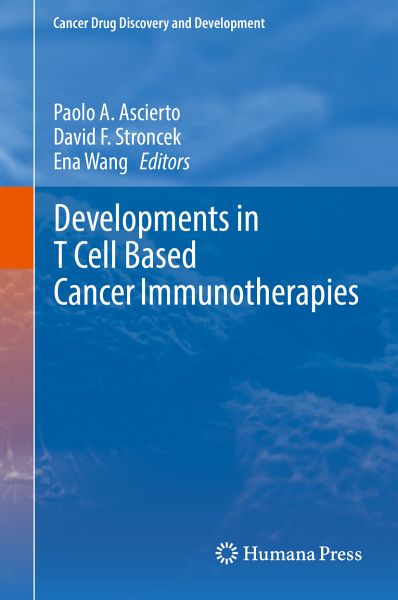
Developments in T Cell Based Cancer Immunotherapies (eBook, PDF)
Versandkostenfrei!
Sofort per Download lieferbar
112,95 €
inkl. MwSt.
Weitere Ausgaben:

PAYBACK Punkte
56 °P sammeln!
This volume illustrates the salient aspects of cancer biology relevant to the successful implementation of immunotherapy. Topics include enhancement of antigen-specific immune responses by anti-cancer vaccines, modulation of the function of T cells within the tumor microenvironment, and the effects of genetic, epigenetic, developmental, and environmental determinants on T cell function. Other topics covered include the ex vivo expansion of T or other immune cells and their genetic modification or reprogramming to increase their ability to survive and expand when adoptively transferred back to ...
This volume illustrates the salient aspects of cancer biology relevant to the successful implementation of immunotherapy. Topics include enhancement of antigen-specific immune responses by anti-cancer vaccines, modulation of the function of T cells within the tumor microenvironment, and the effects of genetic, epigenetic, developmental, and environmental determinants on T cell function. Other topics covered include the ex vivo expansion of T or other immune cells and their genetic modification or reprogramming to increase their ability to survive and expand when adoptively transferred back to the patients. Specific attention is devoted to the genetic manipulation of T cells through the introduction of re-directed T cell receptors, chimeric antibody receptors, and other genetic manipulation aimed at improving their effectiveness as anti-cancer agents. Furthermore, the revolutionary role of checkpoint inhibitors and their potential in combination with other immunotherapeutic approaches or with standard chemo and radiation therapy are extensively discussed.
Dieser Download kann aus rechtlichen Gründen nur mit Rechnungsadresse in A, B, BG, CY, CZ, D, DK, EW, E, FIN, F, GR, HR, H, IRL, I, LT, L, LR, M, NL, PL, P, R, S, SLO, SK ausgeliefert werden.



